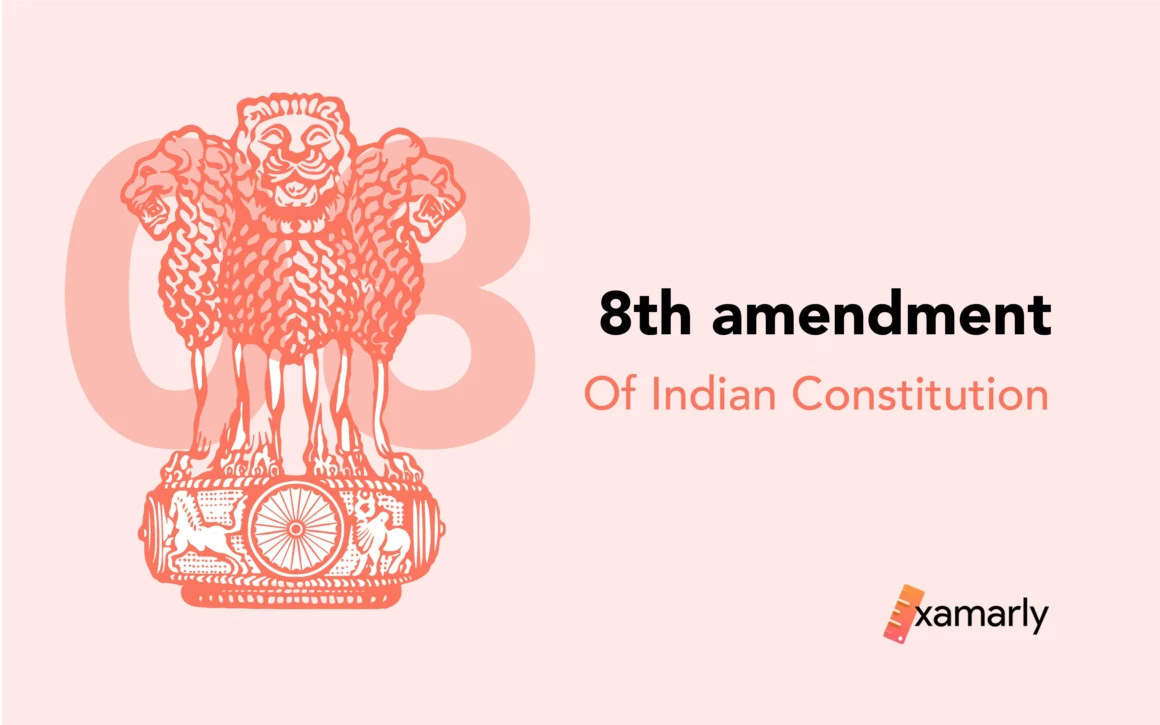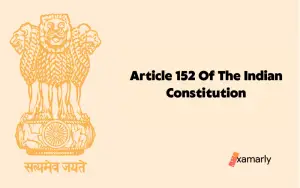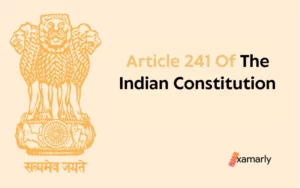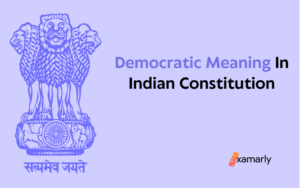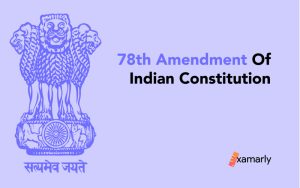The 8th amendment of the Indian Constitution was enacted by the parliament of India in 1959. The Constitution’s Article 334 was changed by this amendment.
For an extended period, the State Legislative Assemblies and the Lok Sabha reserved seats for groups.
The groups are Tribes, Scheduled castes and Anglo Indians. Ten years before, the reservation period was in effect. This amendment allowed for an increase of up to twenty years.
The 8th Amendment of the Indian Constitution was a landmark moment in the country’s history. In this article, we’ll explore the history of this amendment, its key provisions, and how it changed the political landscape of India.
- Why 8th Amendment of the Indian Constitution is Important?
- 8th Amendment of the Indian Constitution
- Facts
- Proposal
- Amendment of Article 334
- Ratification
- Closing Thoughts
- Frequently Asked Questions
- What is the 8th Amendment of the Indian Constitution?
- When was the 8th Amendment of the Indian Constitution passed?
- What is the significance of the 8th Amendment of the Indian Constitution?
- What is Article 334 of the Indian Constitution?
- How many times has Article 334 of the Indian Constitution been amended?
- When was the reservation period extended for the first time?
- Which communities are eligible for reservation under Article 334?
Why 8th Amendment of the Indian Constitution is Important?
The 8th Amendment of the Indian Constitution, which changed Article 334 of the Constitution, is an important milestone in Indian history.
This amendment provided for the extension of representation for Scheduled Castes, Scheduled Tribes, and Anglo-Indians in the Lok Sabha and State Legislative Assemblies, thereby promoting social and political inclusion of underrepresented groups.
The amendment was a step towards ensuring equality and justice for all in the Indian democracy. Over the years, the period of reservation has been extended by subsequent amendments, reaffirming the government’s commitment to affirmative action and inclusive policies.
8th Amendment of the Indian Constitution
The Eighth Amendment to the Indian Constitution brought about a change in Article 334. As a result of the change, the representation of,
- Scheduled Castes
- Scheduled Tribes and Anglo-Indians in the Lok Sabha and State Legislative Assemblies were extended.
The representation was extended for a period of ten years, or until 26th January 1970.
By virtue of the 8th Amendment, reservations were permitted until 1970.
- The 23rd, 45th, 62nd, 79th, 95th, and 104th Amendments extended the reservation period.
- The periods were extended to 1980, 1990, 2000, 2010, 2020, and 2030, respectively.
Facts
- On November 16, 1959, the Constitution (Eighth Amendment) Bill, was presented in the Lok Sabha.
- It intended to change articles 333 as well as article 334 of the Indian Constitution.
- It was introduced by the then Minister of Home Affairs named Pandit Govind Ballabh Pant.
- The bill was approved by the States, and on January 5, 1960, it was accorded president Rajendra Prasad’s approval and became effective.
- It commenced on 5th January 1960.
Proposal
According to Article 334 of the Indian Constitution, after ten years after the Constitution’s inception, the provisions relating to the Anglo-Indian community’s participation in the Lok Sabha and the State Legislative Assemblies through a nomination and the seat reservation for the Scheduled Castes as well as Scheduled Tribes cease to be in force (i.e., it would expire in 1960).
It was also suggested to fix the maximum number of Anglo-Indian community members who may be selected by governors to state assemblies as part of the extension of the timeframe for nomination, and an amendment to article 333 was subsequently recommended.
Amendment of Article 334
The 8th amendment of the Indian Constitution amended article 334. In Article 334 of the Indian Constitution, the wording “10 years” shall be replaced by “twenty years.”
Ratification
Article 368(2) requires that the Act be passed in line with its provisions and approved by at least half of the States’ Legislatures. The following state legislatures approved the proposed amendment:
The 8th Amendment of the Indian Constitution was ratified on December 18, 1959, and it extended the period of reserved seats in the Lok Sabha and State Legislative Assemblies for Scheduled Castes (SCs) and Scheduled Tribes (STs).
These reserved seats were initially meant to be reserved for a period of ten years after the adoption of the Constitution in 1950.
However, the extension of the reservation was necessary to give these marginalized communities a greater opportunity to participate in the political process and have their voices heard.
The amendment was later extended by subsequent amendments to ensure that the reservation system continues to be an integral part of Indian democracy. The 8th Amendment of the Indian Constitution is a crucial part of India’s journey towards social justice and equity.
- Uttar Pradesh
- Mysore
- Assam
- West Bengal
- Punjab
- Madras
- Andhra Pradesh
- Rajasthan
- Bombay
- Orissa
Closing Thoughts
In conclusion, the 8th Amendment of the Indian Constitution was a crucial milestone in India’s journey towards social and political equality.
The amendment’s provisions were aimed at ensuring that marginalized communities had a say in the governance of the country and that their interests were represented in legislative bodies.
The extension of reserved representation for Scheduled Castes, Scheduled Tribes, and Anglo-Indians has helped to address centuries-old injustices and to give a voice to those who have historically been silenced.
The 8th Amendment serves as a reminder of the progress made in India’s democratic journey and the challenges that lie ahead.
The Scheduled Caste, Scheduled Tribe, and Anglo-Indian seat reservations in the Lok Sabha and State Legislative Assemblies were extended under The Constitution (Eighth Amendment) Act, 1959 until 1970.
Related Posts:
- Which Article Is Heart And Soul Of Indian Constitution
- Article 378 Of The Indian Constitution
- Article 371 Of The Indian Constitution
- Article 312 Of The Indian Constitution
Frequently Asked Questions
What is the 8th Amendment of the Indian Constitution?
The 8th Amendment of the Indian Constitution is an amendment that was passed in 1959, which extended the period of reservation for Scheduled Castes, Scheduled Tribes, and Anglo-Indians in the Lok Sabha and State Legislative Assemblies.
When was the 8th Amendment of the Indian Constitution passed?
The 8th Amendment of the Indian Constitution was passed on January 10, 1960.
What is the significance of the 8th Amendment of the Indian Constitution?
The 8th Amendment of the Indian Constitution was significant because it extended the period of reservation for Scheduled Castes, Scheduled Tribes, and Anglo-Indians in the Lok Sabha and State Legislative Assemblies.
What is Article 334 of the Indian Constitution?
Article 334 of the Indian Constitution specifies the reservation of seats for Scheduled Castes, Scheduled Tribes, and Anglo-Indians in the Lok Sabha and State Legislative Assemblies.
How many times has Article 334 of the Indian Constitution been amended?
Article 334 of the Indian Constitution has been amended 6 times, with the 8th Amendment being the first.
When was the reservation period extended for the first time?
The reservation period was first extended through the 8th Amendment of the Indian Constitution, which extended it until 1970.
Which communities are eligible for reservation under Article 334?
Scheduled Castes, Scheduled Tribes, and Anglo-Indians are eligible for reservation under Article 334 of the Indian Constitution.


